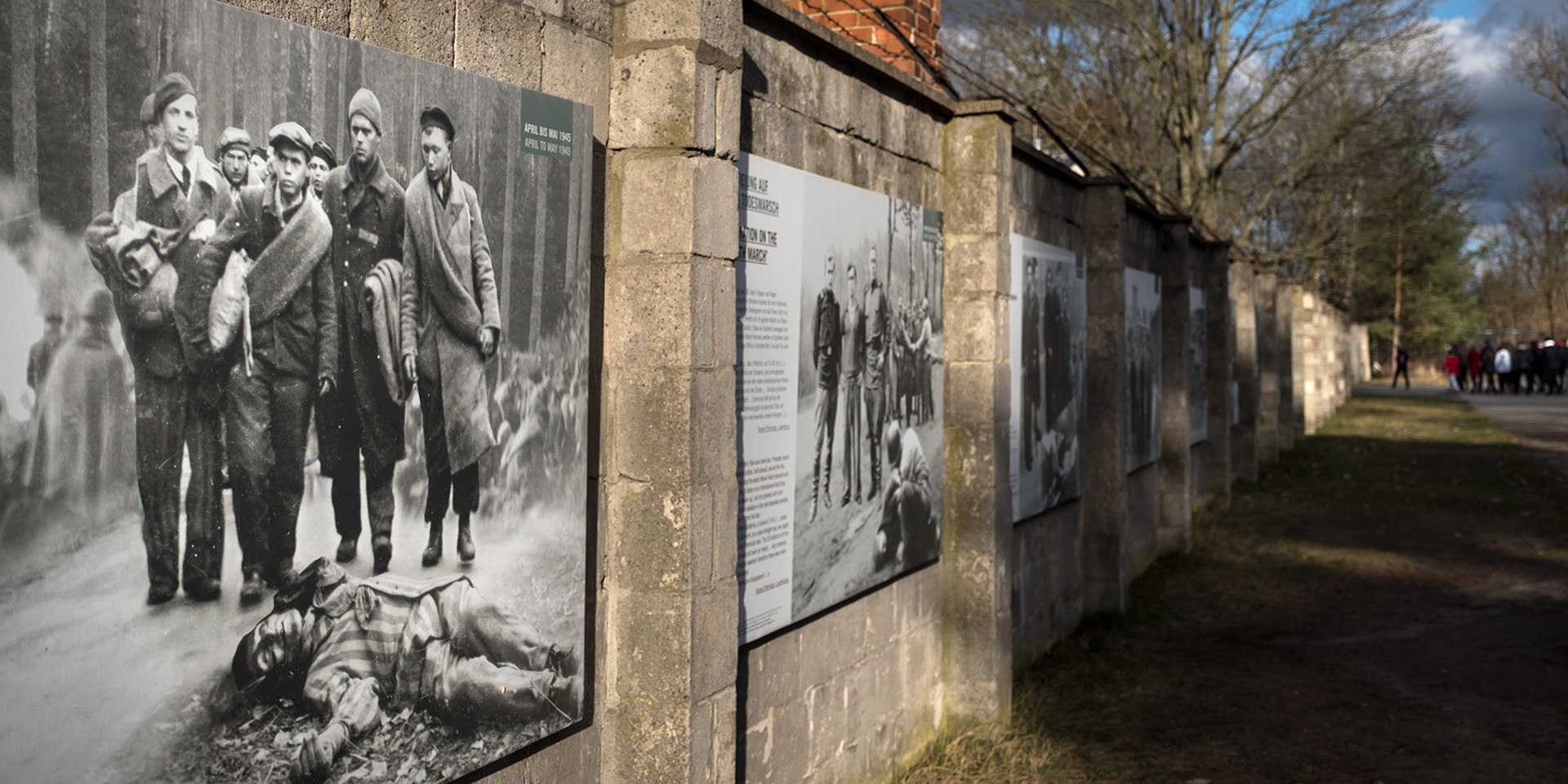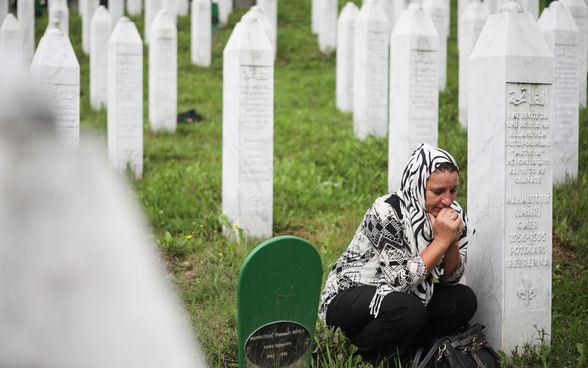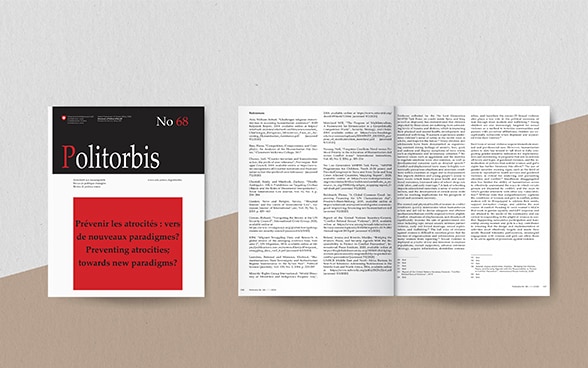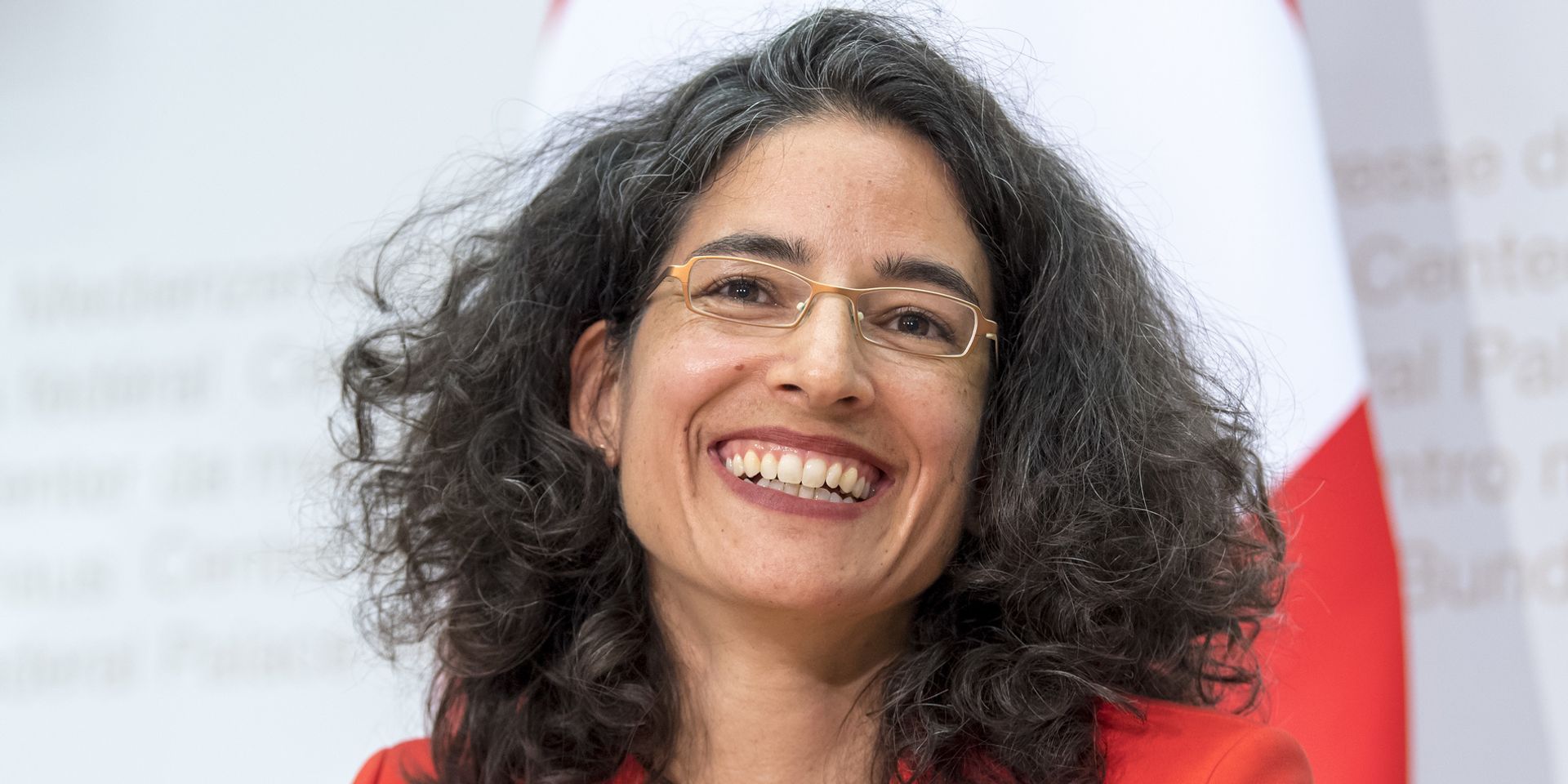Preventing future atrocities begins with the present
In the magazine POLITORBIS, Federal Councillor Ignazio Cassis highlights the importance of anticipating future developments for the prevention of atrocities. This text is the original version of the abridged editorial published in the magazine. The current, and last, issue of POLITORBIS is dedicated to the prevention of the most heinous crimes such as genocide, crimes against humanity, war crimes and ethnic cleansing.

Remembering the past and being prepared for the future are essential to sustainable prevention (Sachsenhausen Concentration Camp). © Keystone
We are human beings. We love. We hate. We share. We fight. People live in communities, but express themselves through their individuality. We gain a sense of identity by differentiating ourselves from others. This applies as much to individuals as to countries, religious communities and cultural groups. Continuous competition has enabled us to succeed in evolutionary terms, fostering excellence and innovation. But despite the Enlightenment and technological advances, the competitive struggle has also led to terrible atrocities – genocide, crimes against humanity, war crimes, and ethnic cleansing.
Genocides, crimes against humanity, war crimes and ethnic cleansings, such as the Nazi Holocaust (1941–1945), the genocide by the Khmer Rouge in Cambodia (1975–1979) and the genocide in Srebrenica (1995), claimed the lives of millions of people because they belonged to ethnic, religious or linguistic groups.
Learning from the past
While groups of people have been killing other groups for thousands of years with an awful inevitability, the international community is always taken by surprise and rendered powerless in the face of unanticipated atrocities. If we are to prevent such atrocities, we need to understand how they come about. Until November this year, Switzerland chaired the state-led initiative Global Action Against Mass Atrocity Crimes (GAAMAC), which provides a platform for prevention.
The Founding Document from 2013 reminds us that no society is immune and that atrocities can occur anywhere, which means that prevention must begin at home. Countries must aim to build stable governments and strong, inclusive societies, and engage in an honest reckoning with their history and its legacy. It is important to bear in mind that genocides, whether caused by structural or situational factors, never happen overnight. The horrific murder and expulsion of thousands of people is always the bloody climax of a long escalation of violence and conflict.
Preparing for the future

To prevent future escalations, we need to act now. But we are often too focused on the here and now and do not have the time or space to look ahead. In our drive to develop the latest smartphone, for example, we forget to consider how technological progress might change our relationships. The Geneva Science and Diplomacy Anticipator (GESDA) is tasked with identifying ways for conflict-ridden societies to harness technological and scientific advances for sustainable development.
Launched a year ago by the Swiss Confederation and the Canton and City of Geneva, GESDA anticipates emerging scientific frontier topics and technologies and the global challenges that these technologies could help tackle. GESDA's aim is to use the future to build the present and address potential sources of conflict sooner rather than later.
This is not about predicting the future, but preparing society for the future as effectively as possible. Short-term initiatives to redress past injustices are not enough. To prevent atrocities, we need to go further and create an 'anti-fragile' society capable of dealing with unexpected developments.
Inclusion rather than exclusion
Technological changes have outpaced human evolution. The industrial revolution has now been replaced by the digital revolution, which enables human interaction and trade to take place remotely. The biological revolution represents the next quantum leap, involving developments in artificial intelligence (AI) and adapting humans to their environment. These innovations go to the very heart of what it is to be human.
This convergence of science and technology has potential benefits for the evolution of humankind, but also carries risks, creating new tensions and expectations regarding secure data access, personalised healthcare and individual resources.
To minimise future conflict, we need to put mechanisms in place now that can harness technological advances for inclusive development and achieve greater convergence, allowing many people around the world to reap the economic benefits, not just affluent countries.
Standing together against forgetting

This debate cannot be confined within national borders. We need to engage in dialogue at global level. Preventing atrocities over the long term requires an effective multilateral system that prioritises peaceful conflict resolution and is based on international law. Switzerland can make an important contribution to prevention in view of its humanitarian tradition and good offices, but also its lead role in international organisations like GAAMAC and research bodies such as GESDA.
This, the last issue of POLITORBIS pays tribute to our work and encourages us to keep going and help make prevention a reality on the ground. It shows how atrocities can be prevented through interdisciplinary cooperation and how the context for atrocities can develop and change. It also explains how crucial it is to identify the patterns that lead to these crimes as early as possible.
Assessing future threat developments has an essential role to play. This involves more than just predicting the future based on the past. We need to use our knowledge of scientific frontier issues to anticipate events and encourage a range of communities with different mindsets to debate the implications. We need to talk to each other today about the issues of tomorrow! I look forward to continuing our important work and discussions.



